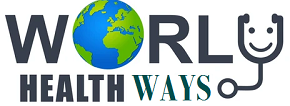So, you’ve probably heard about the benefits of supplements from reputable brands like Thorne Research at Supplement First. But do you need supplements?
There are several signs you should take note of, and it starts with whether you are suffering from symptoms of nutrient deficiencies or not. Check out these signs of nutrient deficiencies, which can indicate the need for a change in your diet or supplementation from brands like Vital Nutrients at Supplement First.
1. Hair Loss
Hair loss is normal, with most of us losing about 100 strands of hair daily. But when you begin finding clumps of hair in your shower or the pillow, you’ll need to have this checked with your doctor. This symptom can mean low iron levels, which can indicate the need for supplementation.
2. Burning Sensation
If you experience a burning sensation in your tongue or feet, it’s recommended to do a blood test to determine your B12 levels. Vitamin B12 is crucial for your body as it produces hemoglobin, which is a part of your red blood cells helping your body receive oxygen.
3. Slow-Healing Wounds
Do you notice that your wounds are taking slower to heal or that your bruise easily? Or that your gums are red, swollen, and bleed despite brushing and flossing daily? This can indicate a vitamin C deficiency.
Vitamin C helps pull cells together, making wounds heal. Furthermore, they also have anti-inflammatory properties and act as an antioxidant to prevent further cell damage.
4. Bone Pain
Do you feel any pain in your bones? This can be a vitamin D deficiency! If you feel like you experience growing pains like you had as a child, discuss this with your doctor. You will likely be prescribed a vitamin D supplement.There are also other ways to get more vitamin D, such as going out to the sunshine for ten minutes and adding vitamin D-rich foods to your diet.
5. Irregular Heartbeat
Calcium helps regulate your heartbeat. If you are deficient in calcium, it may cause arrhythmia (irregular heartbeat) or even chest pains. You can get more calcium from consuming calcium-rich foods and dairy products.
There are also other symptoms related to a calcium deficiency, including:
– Twitching around your face and mouth
– Muscle cramps
– Fractures
6. Poor Night Vision
You guessed it right, poor night vision is an indicator of a vitamin A deficiency! Vitamin A deficiencies can cause the cornea to become dry, making the eyes cloudy. It can lead to vision loss and retina damage.
If ever you notice any changes in your vision, head to the ophthalmologist, who will check the back of your eye. Besides that, consider getting tested for a vitamin A deficiency. You can get vitamin A from many natural foods, such as sweet potatoes, apricots, eggs, mangoes, and milk.
Wrapping It Up
Before you start buying any supplements, make sure you check with your doctor to get the go signal of what supplements you should take.





